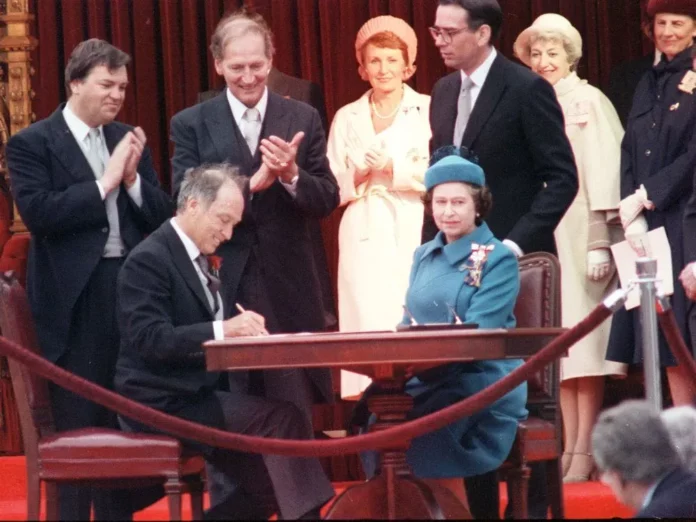Ostensibly for purposes of advancing civil rights, the subtext of the Charter of Rights and Freedoms has never been properly exposed.
April 30, 2024
In the spring of the year 2000, a small book with major implications for Canada appeared on the market. Authored by academics F.L. Morton and Rainer Knopff, the ‘Charter Revolution and The Court Party’ exists in extreme contrast to traditional thought on Charter Rights in Canada.
“The Charter of Rights has transformed Canadian politics. The Supreme Court has used the Charter to change government policy on an ever-expanding list of controversial issues— abortion, aboriginal rights, gay rights, bilingualism, criminal law enforcement, and prisoner-voting.”
Controversy over the Charter is tricky business. Ostensibly for purposes of advancing civil rights, the subtext of its contents has never been properly exposed.
It was in 1982 that former PM Pierre Trudeau conceded to Canadian Premiers dubious of the Charter’s social implications. For the purpose of appeasement, Trudeau approved an addition of Section 33, also known as the “Notwithstanding Clause.” Functioning as a five-year buffer to override contents, Canada’s liberal-leftist contingent have been running down its inclusion for the past 50 years.
Read More HERE


